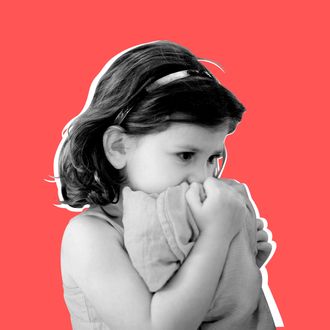
Nearly half of all kids in the U.S. experience at least one event in their childhoods that researchers would consider traumatic: witnessing domestic violence, experiencing racism, and even having parents who divorce are all examples, according to a new study in the journal Health Affairs. And the toxic stress that often follows these experiences can have a serious negative effect on the children’s physical health, report Christina D. Bethell, of the Johns Hopkins Bloomberg School of Public Health, and colleagues.
Bethell and her team used data from the 2011–2012 National Survey of Children’s Health, which includes responses from parents of 95,677 children, including questions about nine traumatic experiences: poverty, divorce, alcohol or drug abuse in the home, neighborhood violence, domestic violence, mental illness in the home, parental jail time, unfair treatment because of race or ethnicity, and the death of a parent. The researchers found a link between traumatic events and “chronic health problems, including asthma, ADHD, Autism Spectrum Disorders, obesity,” and other health issues, according to the press release. These children also tended to suffer academically: The children who’d experienced at least two traumatic events were two and a half times more likely to repeat a grade in school when compared to the kids who hadn’t experienced trauma.
But there is a silver lining here, according to the press release:
Among children with two or more adverse experiences who already have a chronic condition requiring regular doctor visits, those who had learned and showed even the one aspect of resilience evaluated in the study were 1.5-times more likely to be engaged in school and nearly half as likely to repeat a grade in school compared to those who had not learned this skill.
Exactly how those kids learn resiliency is the question, and it’s one the researchers intend to answer. As Bethell said in a press statement, “Supporting and teaching the adults in children’s lives to learn to heal from trauma and learn resilience themselves may be the most effective strategy to implement immediately.”

